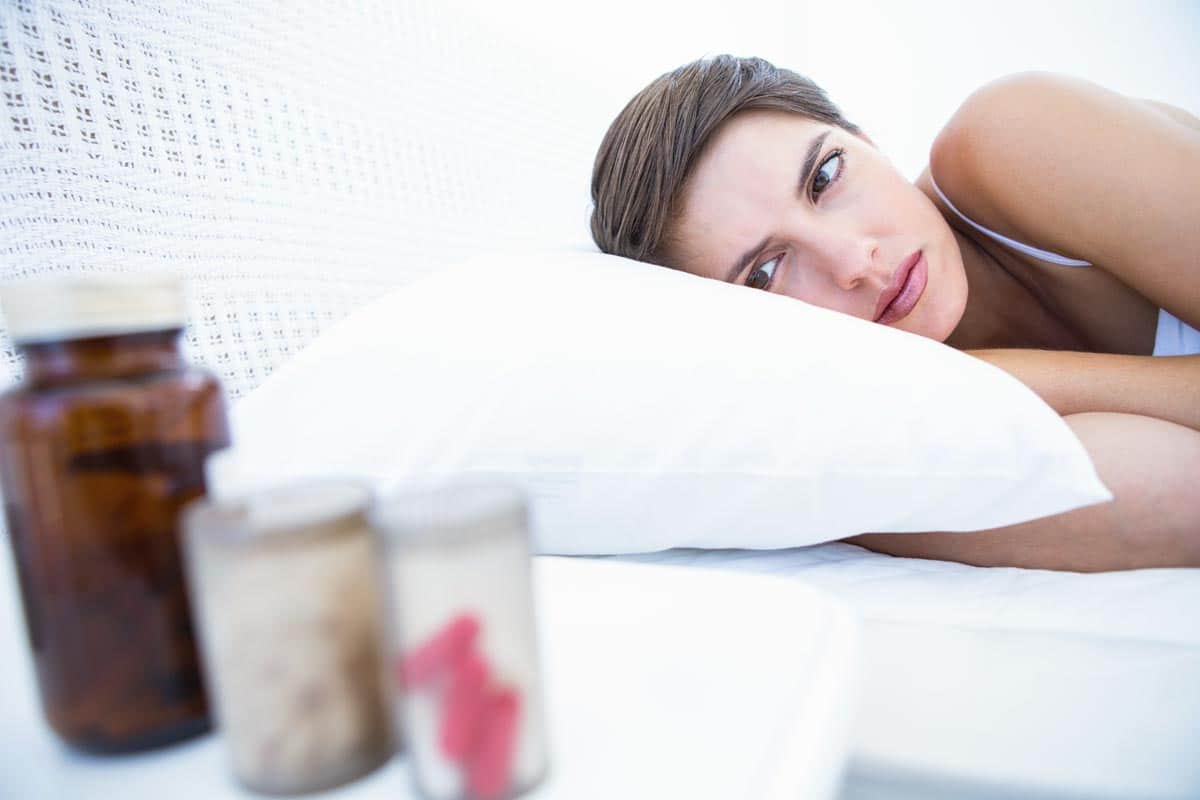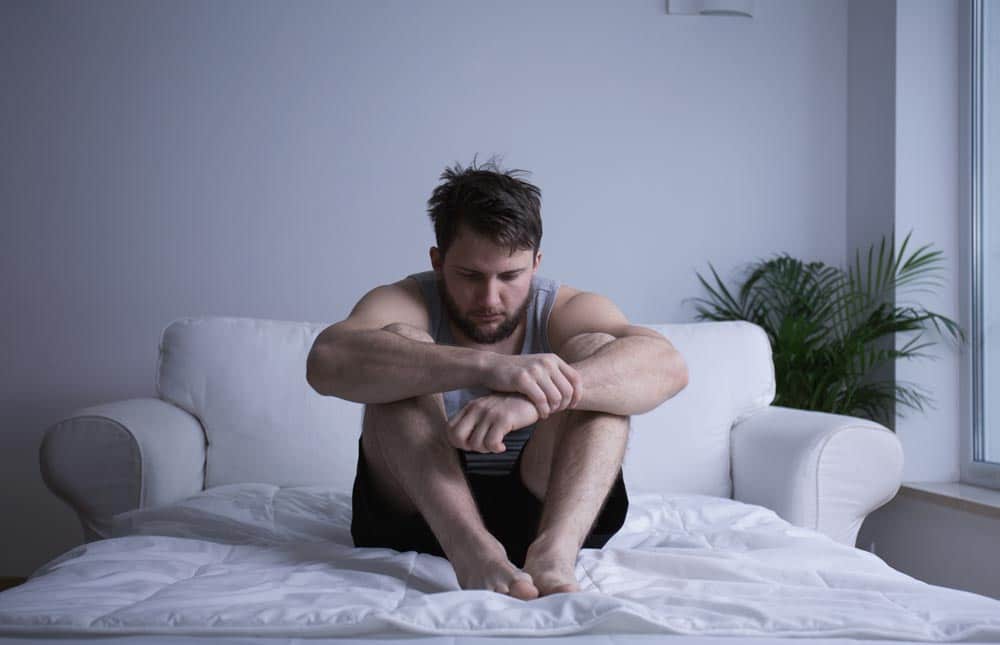 Sleeping pills are one of the most commonly prescribed medications in the United States. In fact, over 5% of women and 3.5% of men in the U.S. have a prescription sleeping aid. But, while prescription sleeping pills are popular and very common, they’re also dangerous. More than 42,000 people are hospitalized each year because of sleeping pill abuse, addiction, and overdose. And, with millions of people using sleeping pills recreationally, sleeping pills have a very real potential for abuse and for addiction.
Sleeping pills are one of the most commonly prescribed medications in the United States. In fact, over 5% of women and 3.5% of men in the U.S. have a prescription sleeping aid. But, while prescription sleeping pills are popular and very common, they’re also dangerous. More than 42,000 people are hospitalized each year because of sleeping pill abuse, addiction, and overdose. And, with millions of people using sleeping pills recreationally, sleeping pills have a very real potential for abuse and for addiction.
If you or a loved one has a sleeping pill subscription, there’s likely no need for concern. Today’s sleeping pills are often handed out with a Risk Evaluation & Mitigation Strategy, which involves medical monitoring to reduce the risk of abuse and addiction. This increasing regulation makes sleeping pills safer. However, if you think you or your loved one already has a problem, it’s important to talk to them, assess usage, and move forward from there. Sleeping pills can be dangerous, they can be addictive, and taking the right steps to manage substance and sleeping pill usage is important.
Are Sleeping Pills Addictive?
Yes. Many sleeping pills are extremely addictive. With an estimated 4% of the United States using sleeping pills of some kind, it’s difficult to track how much so. However, all common sleeping pills including Ambien, Zolpidem, and similar have a profile for abuse. In one study, users showed a preference for sleeping pills over money, even after only a few days of recreational sleeping pill abuse.
However, most people become addicted to sleeping pills over time, through prescription use. Here, tolerance and psychological dependence combine to create a seeking effect, similar to that of other addictions.
Chemical Tolerance – Tolerance is the process of the body adjusting to a substance. This means that you need more of the substance to achieve the same result, have to take the substance more often to maintain effects, or get less results when taking the same dose. This “tolerance “pushes many people to increase their dose, sometimes without consulting or even informing their doctor. This is important, considering many people are prescribed sleeping pills because they cannot sleep. People who have obligations, who have to be places in the morning, and who have to work need sleep. Facing this, it can seem harmless to simply take more of a medication than is recommended. Over time, this process exacerbates addiction and increases the likelihood of developing a problem.
Psychological Dependence – Nearly anyone can agree that sleeplessness is horrible. No one wants to experience it. Sleeping pills can resolve long-term and even life-long problems for many people. This sense of relief, especially when coupled with often-overlapping or commonly dual-diagnosed disorders like depression and anxiety, can result in a sense of anxiety around not taking the medication. You take the pills to sleep, but eventually you convince yourself that you need the pills to sleep. Most sleeping medication is intended to be taken as a last resort, after you’re certain you cannot sleep. Users who develop psychological dependence convince themselves they need the drug to sleep to begin with and take it as a preventive measure. This type of usage quickly results in chemical dependence and leads to addiction.
Recreational Use – While most individuals with a sleeping pill prescription do not use their sleeping pills recreationally, pills like Ambien are available on the street for as little as a few dollars. Ambien and other sleeping pills deliver highs lasting from half to over 3 hours, making them popular for parties and for people who want to go home and relax. Sleeping pills are hypnotic and sedative, usually muscle relaxers, meaning that they cause a high, cause relaxation, and make people feel good when they remain awake. This can be difficult to resist for individuals going through stressful periods, those with high-stress jobs, or anyone with a previous history of addiction. Recreational users may have a prescription, but more often, they steal pills, buy them, or otherwise acquire them illegitimately, such as through doctor shopping.
Essentially, there are many ways to become addicted to sleeping pills. Tolerance, psychological dependence, and long-term usage of sleeping pills all combine, resulting in seeking behavior, withdrawal on cessation of use, and addiction.
Be Brave. Get Help.
We know what it’s like to have a new chance at life. We want you to feel that, too.
Call us: 1 954-688-5806
Signs of Sleeping Pill Addiction
While the signs of addiction will vary slightly between users, most people with addiction will show similar symptoms. These include:
 Increased stress levels and/or paranoia. Drugs like Ambien affect the GABA system, meaning the user becomes stressed when not high after tolerance sets in
Increased stress levels and/or paranoia. Drugs like Ambien affect the GABA system, meaning the user becomes stressed when not high after tolerance sets in - Changes in behavior
- Constant drowsiness or lethargy
- Frequent headache or hangover symptoms
- Frequent nausea and vomiting
- Delusions or hallucinations
- Coordination issues
- Memory problems
- Taking more medication than their prescription allows
- Taking sleeping pills every day
- Running out of a prescription early
- Purchasing medication illegally
- Take sleeping pills during the day or when intending to stay awake
- Drinking or using other non-prescription drugs with sleeping pills
- Crushing sleeping pills to increase the high
- Going into withdrawal
- Compulsively using sleeping pills
- Seeking behavior, such as lying or theft to acquire sleeping pills
- Attempting to quit using it and failing
- Using sleeping pills in situations which might be dangerous, such as at work or before operating a vehicle
- Continuing to use sleeping pills despite understanding that sleeping pill usage is harming them
These symptoms vary widely, but they are all highly indicative of a substance use disorder. While the first few are only indicative of sleeping pill “Use”, the latter half do not show up in healthy drug use of any kind.
Withdrawing from Sleeping Pills
Many people experience withdrawal symptoms after long-term sleeping pill use. The more frequently the individual takes pills, the more likely it is they will experience withdrawal. This means they should seek out a detox program to safely withdraw from the pills with medical monitoring. Here, the first symptoms are rebound insomnia, general malaise, and cold/flu symptoms. These can be moderate to severe. In most cases, withdrawal symptoms will begin 48 hours after the final dose and will escalate over the next few days. Eventually, withdrawal escalates into tremors, mood swings, irritability, delirium, cramping, rapid breathing, increased heart rate, palpitations, and in some cases, seizures.
Sleeping pill withdrawal can be dangerous. It’s important to seek out a medical assessment and follow the advice of your doctor or attend a medically supervised detox program.
Getting Help with a Sleeping Pill Addiction
 If you or a loved one is struggling with a sleeping pill addiction, it’s important to get help. Sleeping pill addiction worsens over time, causes health problems, and creates considerable risks for mental and physical health problems. Quitting the drug and going “cold turkey” is dangerous. Additionally, as long as someone still has access to a drug, they are highly likely to relapse. An addiction treatment program can help you or your loved one to overcome addiction in a safe and healthy way.
If you or a loved one is struggling with a sleeping pill addiction, it’s important to get help. Sleeping pill addiction worsens over time, causes health problems, and creates considerable risks for mental and physical health problems. Quitting the drug and going “cold turkey” is dangerous. Additionally, as long as someone still has access to a drug, they are highly likely to relapse. An addiction treatment program can help you or your loved one to overcome addiction in a safe and healthy way.
Most addiction treatment starts with 1-2 weeks of detox with medical monitoring. Afterwards, you’ll be moved into a customized drug rehab program, built around your needs. This normally includes behavioral therapy designed to assess the underlying causes of addiction and to create new and healthier behaviors. You’ll also go through counseling, group therapy, and learn skills designed to decrease stress, improve life satisfaction, and improve your health, so that you can rebuild your life.
No one plans to become addicted, especially not to sleeping pills. Getting help is a simple process of reaching out, going to a program, and committing to therapy, change, and personal improvement. A rehab center can give you the fresh start you need to get your life back.
If you or your loved one have questions about treatment for sleeping pill addiction please contact Laguna Shores today. We are here to support you.

 Matthew Beck B.A, M.A, LMFT
Matthew Beck B.A, M.A, LMFT 


